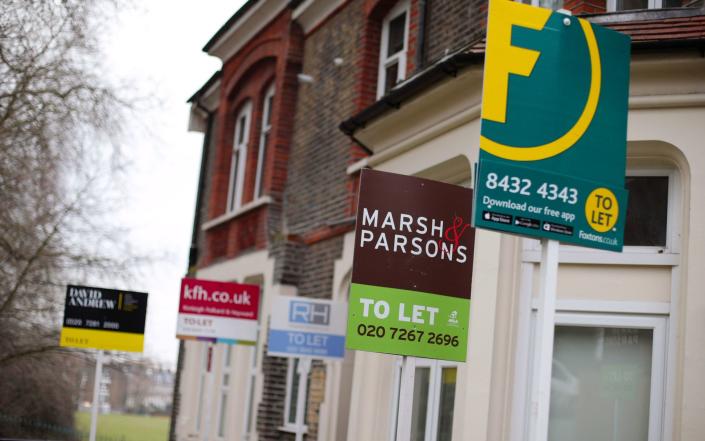Eir Nolsoe Mon, April 17, 2023, 1:00 AM EDT

Nearly half a million landlords are expected to sell up in the next five years, as the baby boomer generation retires and cashes in their nest eggs.
Around 140,000 landlords sold up and left the market last year after reaching retirement age, according to research from estate agent Hamptons. Almost 100,000 a year are expected to follow them for the next half decade.
The wave of landlord retirement is set to put more upward pressure on rents as the number of lettable homes available drops.
High prices, rising interest rates and growing red tape means new buy-to-let landlords are not replacing those quitting the market in the same numbers.
Aneisha Beveridge, head of research at Hamptons, said: “Over the next couple of years, we’re expecting rental growth to be quite strong and probably outpace house price growth.”
She added: “One of the big reasons for that is that we think landlords will continue leaving the sector and we can’t see that huge numbers will enter.”
“Age and retirement planning is a big factor” for investors deciding to call it quits, Ms Beveridge said.
The first buy-to-let mortgage was launched in 1996 and many landlords moved into the market as an investment for their retirement.
Over half of mortgaged rental properties were bought within 11 years of such loans being introduced and many of these early adopters are now cashing out.
The average age of buy-to-let landlords now stands at 60 and roughly 96,000 property investors will reach retirement every year over the next half-decade.
Many are expected to sell rather than continue managing their properties in retirement. Changes to taxation and regulation also meant “some landlords have decided that they just don’t want the hassle”, Ms Beveridge said.
Retiring landlords accounted for nearly three quarters of buy-to-let property sales last year, Hamptons found.
Almost half of buy-to-let properties sold last year were bought at least 15 years prior, up from a third in 2018.
The expected wave of retirees cashing out is expected to push sales of buy-to-let properties to a new peak in the coming years, Hamptons said.
However, many are likely to be bought as homes, rather than rental properties.
Soaring house prices and rising interest rates have put the buy-to-let market out of reach for many later generations, Ms Beveridge said.
“We have lived through a decade or longer with people struggling to afford to buy their own home, never mind have the cash to buy additional buy-to-lets.
“I think it’s that sort of demographic change that we’re going to start seeing play out.”
Separate research from Hamptons found that high interest rates have destroyed hopes of building buy-to-let portfolios in four in five local authorities.
Historically, buy-to-let investors have purchased new properties by taking equity out of their existing properties to get new mortgages.
Last year, portfolio landlords in every single local authority in England and Wales could have boosted their income by using £100,000 to put a 25pc deposit on a new property that would generate rent.
However, most would now lose money on the same transaction at today’s rates.
A lack of supply of homes available to rent has sent prices soaring. Rents have risen by 11pc on average in the 12 months to March, according to Hamptons data, marking the second fastest annual increase in at least a decade. In Inner London, prices have risen by nearly a fifth.
In 263 of the 330 local authorities in England and Wales, buy-to-let landlords would be better off using their savings to pay down their existing debt to boost the profit margins on the properties that they already own.
Hamptons’ calculations were based on a landlord with a property portfolio in a company structure worth £1 million, with mortgages at an average of 60pc.
